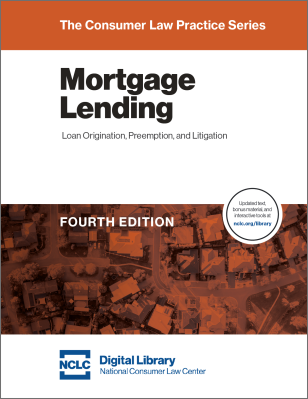In the wake of the irresponsible lending that led to the Great Recession, Congress passed the Dodd-Frank Act, which pushed back against the free pass that federal banking regulators had given to national banks to avoid state consumer laws involving mortgages, credit cards, bank accounts, car loans and leases, private student loans, and other products. Essential to this free pass were rules issued by the national banks’ federal regulator, the Office of Comptroller of the Currency (OCC), purporting to preempt broad categories of state consumer protection law, without replacing them with corresponding federal protections.
Yet, after Dodd-Frank, the OCC made only minor revisions to its broad preemption rules, and many courts have blindly applied those overly broad rules and continued to hold that federal law preempts a wide range of state consumer protection, lending, and banking laws.
An important Ninth Circuit decision has recently reversed this trend and held that OCC preemption rules are entitled to “little, if any, deference.” This pushback should make consumer attorneys rethink litigation potentials against national banks and federal savings associations and any other lender or financial institution that claims that federal banking rules protects it from state law claims.
Distinguishing Rate Exportation from OCC Preemption
While there is thus significant pushback to OCC preemption rules, the same is not the case for interest rate exportation, a doctrine that allows banks to avoid interest rate caps imposed by the state where the consumer obtained credit. Federal statutes explicitly provide that national banks instead can charge the higher of the alternative federal rate (now under 4%) or the rate set by the national bank’s home state (called rate exportation). By contrast, OCC’s preemption rules seek to override any state regulation of matters other than interest rates. OCC’s preemption rules do not apply to interest rate limits—those limits are set by the national bank’s home state law. See NCLC’s Mortgage Lending § 8.4.
For example, rate exportation applies so that a Delaware national bank’s credit card interest charged to a Vermont consumer must comply with Delaware interest limits, not Vermont’s limits. On the other hand, OCC’s preemption rules would come into play if, for example, a consumer wanted to challenge a national bank’s credit card marketing practices under a state statute restricting unfair or deceptive practices.
Congress Sharply Limits Federal Preemption of State Law
The 2010 Dodd-Frank Act, at 12 U.S.C. § 25b(b)(1), provides that state consumer financial laws are preempted only where state law “prevents or significantly interferes with the exercise by the national bank of its powers,” codifying Barnett Bank of Marion County, N.A. v. Nelson, 517 U.S. 25 (1996). The Act also requires that the OCC make any preemption determinations “on a case-by-case basis.” 12 U.S.C. § 25b(b)(3). See NCLC’s Mortgage Lending §§ 5.2, 5.3.
In addition, the Act provides that, when a court reviews the validity of an OCC preemption determination, it is to independently consider the agency’s thoroughness in its consideration, the validity of its reasoning, consistency with other agency determinations, and other persuasive and relevant factors. 12 U.S.C. § 25b(b)(5). This is a statutory requirement that courts must use the less-deferential Skidmore standard rather than Chevron deference. See NCLC’s Mortgage Lending § 5.3.8.
Ninth Circuit: Courts Should Pay Little or No Deference to OCC Preemption Rules
Lusnak v. Bank of America, 883 F.3d 1185 (9th Cir. 2018) is an important decision recognizing that OCC preemption rules fall far short of complying with 12 U.S.C. § 25b and the Supreme Court’s Barnett Bank standards. The decision finds that the OCC preemption rules are entitled to “little, if any, deference.” When a case involves consumer protection laws, a field traditionally regulated by the states, Lusnak requires “compelling evidence” that state law interferes with a national bank’s exercise of its powers. The bank has the burden of proving its preemption defense, and OCC rules are entitled only to Skidmore deference.
With little deference due to the OCC preemption rules, Lusnak holds that the court itself must apply the Barnett Bank standard. The court’s specific holding is that a state law requiring interest to be paid on escrow accounts is not preempted, largely because a federal law requires servicers to administer escrow accounts in accordance with state law, including state laws that require payment of interest. Congress’s mandate that banks follow state law shows that it considered it possible for banks to do so without preventing or significantly impairing the exercise of their powers.
What Lusnak Means for OCC’s Preemption Rules
OCC’s current preemption rules, 12 C.F.R. §§ 7.4008 and 34.4, state that national banks can make loans “without regard to state law limitations” concerning a variety of broad subject areas, including:
- Licensing;
- Requirements concerning insurance;
- Loan-to-value ratios;
- The repayment schedule, amortization, and other terms of credit;
- Escrow accounts;
- Security interests;
- Access to and use of credit reports;
- Disclosure and advertising;
- Processing, origination, servicing, sale or purchase of, or investment or participation in mortgages.
Because of Lusnak, courts in the Ninth Circuit—and courts in other circuits that find Lusnak persuasive—should no longer give any substantial weight to OCC’s list of preempted subject areas. Instead of treating these categories of state laws as preempted, courts should weigh the state laws in these categories on a case-by-case basis. As Lusnak instructs, the burden on the bank is to show with compelling evidence that the applicable state law significantly interferes with the bank’s exercise of its powers.
Lusnak Should Also Expand Those State Laws That Even Under OCC Rules Are Not Preempted
In addition to identifying categories of state laws that OCC considers to be preempted, the rules have a savings clause of sorts, listing state laws that are not preempted to the extent they are consistent with Barnett Bank. These categories include contracts, torts, criminal law, “rights to collect debts,” and acquisition and transfer of real property. The OCC rules also provide that other state laws that are made applicable to national banks by federal law, or that OCC determines to be applicable to national banks in accordance with Barnett Bank, are not preempted.
Courts have differed in how they strike a balance between the OCC rule’s list of preempted areas of state laws and the rule’s savings clause. Even for courts that do not follow Lusnak and instead give weight to OCC’s preemption rules, Lusnak is authority for striking the balance in favor of the savings clause. The savings clause incorporates the Barnett Bank standard, and Lusnak holds that the bank has the burden of producing compelling evidence to show that that standard is met. In addition, the OCC itself has stated that it considers state laws against unfair or deceptive practices to be general laws of the type not generally preempted. See NCLC’s Mortgage Lending §§ 5.8.4.1, 5.8.4.9.
Practice Application: State Laws that Parallel Federal Laws Should Not Be Preempted
Lusnak underscores the important principle that a state law should not be preempted if federal law already prohibits or requires the same thing. Since the national bank already must comply with the federal law, the state law does not prevent or significantly interfere with a bank’s exercise of its powers. In Lusnak, the fact that federal law already incorporated or endorsed state escrow laws demonstrated Congress’s judgment that these laws did not interfere with a bank’s exercise of its powers. There are many other state law requirements that have some parallel in federal statutes and regulations, including:
- State debt collection practices statutes that parallel the federal Fair Debt Collection Practices Act, which includes both broad prohibitions of unfair, deceptive, and abusive debt collection tactics and very specific prohibitions.
- Claims based on violations of state law equivalents of the Federal Trade Commission’s Holder Rule.
- State law claims that parallel federal disclosure requirements or the substantive prohibitions of the federal Truth in Lending Act.
- State claims that seek to enforce a financial institution’s obligations under RESPA.
- Claims based on state anti-discrimination laws that parallel federal anti-discrimination statutes.
- State law claims that parallel the OCC regulation prohibiting lending without regard to ability to repay.
- State law claims regarding appraisal fraud that are consistent with the OCC’s appraisal independence rules.
- State laws against unfair, deceptive, or unconscionable practices that echo federal laws against unfair, deceptive or abusive practices.
These examples and others are discussed in NCLC’s Mortgage Lending § 5.5.
Lusnak is binding precedent for courts in the Ninth Circuit, and it is also an important ruling for courts elsewhere. National banks should not have a free pass to flout state law unless the national bank can prove that the state law prevents or significantly interferes with a bank’s exercise of its powers. To the extent to which national banks violate state laws that do not meet this standard, they open themselves up to significant litigation exposure.
Nonetheless, it is important for consumer litigators—in the Ninth Circuit or elsewhere—to be careful in their case selection. Lusnak does not mean that state laws are not preempted, but only reduces the role of the OCC regulation in determining whether a particular state law is preempted.
Banks can be expected to fight hard against any weakening of their preemptive powers, and to take cases all the way to the Supreme Court. For example, the bank in Lusnak has filed a petition for certiorari with the Supreme Court. See Case No. 18-212 (Aug. 14, 2018).
It is best to test out the application of the Ninth Circuit’s Lusnak holding in cases where the average person can see the unfairness of the challenged conduct, and where there are solid arguments that the state law does not in fact prevent or significantly interfere with the bank’s exercise of its powers.


